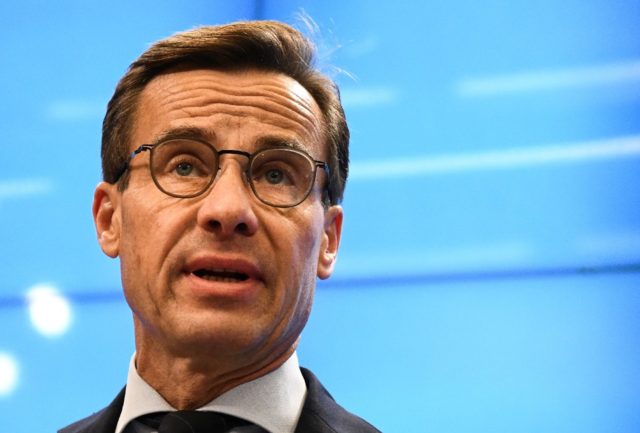Sweden’s speaker of parliament Andreas Norlen said Tuesday he had asked the leader of the right-wing opposition’s largest party, Ulf Kristersson, to see whether he could rally the votes to succeed ousted Prime Minister Stefan Lofven.
Lofven announced on Monday he would resign following a lost vote of no confidence last week rather than call a snap election, leaving it up to the speaker to begin the search for his replacement.
Norlen did not formally propose Kristersson as the next candidate for prime minister.
But the speaker gave the leader of the conservative Moderate Party three days to sound out potential support to pass a vote in parliament.
“He is the leader of the largest party among the group of parties that toppled Prime Minister Stefan Lofven… it’s reasonable that he is allowed to investigate the possibility” of taking over, Norlen told a press conference after meeting with party leaders.
The government was toppled after Lofven’s Social Democrats fell out with the Left Party propping it up.
Although filed by the far-right Sweden Democrats, the confidence motion came after the Left Party said it was planning one of its own to protest a plan to ease rent controls.
Kristersson’s Moderate Party and the Christian Democrats were quick to back the motion, which was passed by 181 MPs in the 349-seat parliament.
Under the Swedish system, a prime minister must be tolerated by parliament — meaning they can secure office so long as a majority does not vote against them.
Parliamentary deadlock meant the process to find a prime minister took four months after the 2018 election, but Norlen stressed that the process “could not take that long” this time around.
The speaker aims to hold a first vote on a new head of government next week, and should that fail a new vote every week.
Should four attempts to elect a new prime minister fail, a snap election would be called automatically and be held within three months.
The next general election in Sweden is scheduled for September 2022 and will go ahead regardless of a snap election, meaning Swedes could be heading to the polls twice in the space of a year.
In a social media post, Kristersson said he would now begin “focusing on the important talks” with other parties, but did not speculate on his chances of success.
Kristersson was given the same mission twice in 2018 but then failed to find enough support among the other parties.

COMMENTS
Please let us know if you're having issues with commenting.